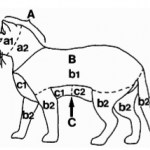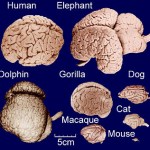
Here are my Research Blogging Editor's Selections for this week:
"Young children are little scientists. They instinctively stretch, prod, observe and categorise the world's offerings." Christian Jarrett at BPS Research Digest discusses how early children can be exposed to scientific ideas.
Dr. Shock asks, "Why does someone write a personal blog and not simply use the Internet for taking in media content?"
David Berreby at the Mind Matters blog discusses a fascinating observation: "After U.S. elections, Internet searches for porn are more frequent in states that voted for the winners." To the…
...by DeLene Beeland, for the Raleigh News Observer and the Charlotte Observer (same interview, two papers).
Every year the science blogging community organizes the "Science Bloggers for Students challenge", a month-long competition between science blogs to see which raise do the most to help low-income science classrooms through the DonorsChoose.org website. Through Donors Choose, teachers can go and make requests for specific supplies or materials that they otherwise can't afford.
I look back on my elementary, middle, and high school science classes, and my most vivid (and fondest) memories were of the hands-on demos and experiments that we did in class, of the books that we were given to read (…
This one is worth watching all the way through:
(h/t Sara)
And, from the sublime to the mundane:
(h/t Dr. Kiki)
I showed this video today as an intro to my 8-week "mini-course" on Canine Cognition.
In it, narrator John Lithgow presents two slightly different versions of the dog domestication story. The first version is essentially the Belyaev story: young wolves would be adopted into the camps of early humans. Only those who were most tame would breed with eachother, and over many generations, the domestic dog would emerge. The second is the version in which wolves "chose" to be domesticated - they noticed a lot of tasty trash around human encampments, and if they were unafraid enough to hang around,…
Here are my Research Blogging Editor's Selections for this week:
"So, sometimes we settle for less than George Clooney or Heidi Klum." Casey Rentz at The Lay Scientist asks do we REALLY want what we say we want, when it comes to choosing mates?
Travis Saunders of Obesity Panacea asks: Which Results in Healthier Food Purchases: Junk Food Tax or Health Food Subsidy?
Do birth control pills really change the brains of women? Or is it just scare-mongering? Scicurious of Neurotic Physiology investigates the question.
Genes for ADHD, eh? The Neuroskeptic writes, "These genes don't so much cause…
Whether you're a dog, a cat, or a grad student who hasn't been home to shower for a few days, fleas are a major problem. They make skin itch. And NOTHING is worse than itchy skin.
But...
Do you know WHERE the fleas are? Where they like to hang out and guard their little flea eggs? Where's the best place for a flea to get a decent night's sleep, or a delicious snack? These are important questions. Lucky for us, Hsu, Hsu, and Wu of the Department of Entomology at National Taiwan University have the answers. And this paper, dear readers, is pure blogging GOLD.
Now, if you wanted to find out…
Science
Someone had to ask it. Why do squirrels masturbate? Obviously, it's a piece by Ed.
Sentiment-sensing software could aid in weeding hostile online comments. If this comes to pass, I imagine most of Physioprof's comments will be weeded out, sadly.
An important new study of mirror self-recognition in Japanese macaques, explained by Carl Zimmer. And BPS Research Digest weighs in on the validity of the mirror self-recognition test in the first place.
Lots of news this week about the discovery that the exoplanet Gliese 581g could be hospitable to life. Brian Romans explains the important…
Here at The Thoughtful Animal, we are conducting series of seven-question interviews with people who are doing or have done animal research of all kinds - biomedical, behavioral, cognitive, and so forth. Interested in how animal research is conducted, or why animal research is important? Think you might want to do some animal research of your own someday? This is the interview series for you.
Andrew Thaler (twitter, blog) is pursuing a doctorate in the marine biology at the Duke University Marine Lab. He is especially interested in population genetics in hydrothermal vent communities. He is…
The National Institutes of Health announced that by 2011 it will transfer almost two hundred chimpanzees from the Alamogordo Primate Facility in New Mexico to a lab in San Antonio, Texas, lab for use in invasive research. In 1995, the NIH announced a moratorium on the breeding of chimps in federally-supported labs, and as a result, scientists have developed alternative ways to investigate diseases. But there are still viruses, such as hepatitis C and HIV, that other species simply can't contract. This fact, some argue, makes it prudent to subject chimps to this sort of biomedical testing.…
Aaron Rowe and I are organizing a tweet-up for LA-area science writers/communicators. Many of us interact daily through our blogs or through twitter, but rarely in person - so this is a chance to meet up face to face. If you're interested, please click the link to this survey, which we'll use to put together an email/twitter list, as well as to determine availability for a weekend afternoon meet-up in the near future.
via Voice of America News blog:
Organizers of the Commonwealth Games in India say they will try to prevent wild monkeys from disrupting the event by deploying a team of larger, fiercer monkeys to scare off their smaller cousins.
Indian security officials put 10 langur monkeys and their handlers on duty Wednesday at several venues around New Delhi, the host city, to keep wild monkeys in check. More langurs will be deployed when the Commonwealth Games open on Sunday.
Some participating nations have expressed concern about the threat of wild monkeys, dogs and snakes attacking athletes and…
The list is growing fast - check the submissions to date and get inspired to submit something of your own - an essay, a poem, a cartoon or original art. Continue to submit your best posts, and the best posts you read online. Especially those art/cartoon posts, and poems!
The Submission form is here so you can get started. Under the fold are entries so far, as well as buttons and the bookmarklet. The instructions for submitting are here.
You can buy the last four annual collections here. You can read Prefaces and Introductions to older editions here.
Interested in the origins of this project?…
Here are my Research Blogging Editor's Selections for this week:
American family values: where even the dull can dream! "One of the issues when talking about the effect of environment and genes on behavioral and social outcomes is that the entanglements are so complicated. That is why cross-cultural studies are essential," writes Razib Khan.
If you ask Rift of the Psycasm blog, We should be music testing athletes! "Wherein our hero examines the positive effects of Music on Workouts, even though he thinks music is cheating."
Negative Evidence: Still Missing After All These Years. A killer…
Your humble narrator finds himself sick with a cold, so here's a post from the archives.
There is considerable research on how children interact with other children and with adults, and how child development can be influenced by those interactions. But research on children's interactions with non-human animals seem to be limited. Given how ubiquitous pets are in the homes of children (at least, in WEIRD cultures), it is somewhat surprising that there hasn't been more work on the way pet ownership might affect child development.
According to the US Humane Society:
There are approximately 77…
Science
The NY Times had an article on why we like spicy foods...a week after I had my piece in the Guardian making the same arguments. Coincidence? Probably.
"As the cost of DNA sequencing continues to plummet, I predict that these canine genetic/genomic studies will get much more common." Virginia Hughes reports on the world's first dog genomics program.
Martin Robbins on why personal drug detectors for parents is a bad idea. Plus a hilarious story involving cocaine, marmite, and airport security.
Why are California sea otters dying? A good article from the LA Times, to be read in…
Ravi Iyer, a graduate student and colleague of mine at the University of Southern California in social psychology, blogs regularly about moral psychology at polipsych.com, and tweets from @ravi_polipsych. He collaborates with others on YourMorals.org, where interested individuals may participate in research in political and moral psychology. I asked him to contribute a guest post about his work.
As a moral psychology researcher, I was very excited when Jason wrote that his posts this week would cover moral psychology, and I have enjoyed his previous posts concerning the evolution of morality…
Below the fold, you'll find a complete listing of all tweets from #SMWUSC, in reverse chronological order.
@jgold85 Thus concludes "Biomimicry" @USCedu #smwuscThu, 23 Sep 2010 23:32:58 +0000 - tweet id 25352854351 - #1tweet details
@JessikaWalsten Wrapping up the biomimicry event at #smwusc. It's been fun!Thu, 23 Sep 2010 23:30:34 +0000 - tweet id 25352672665 - #2tweet details
@LisaRau Rar! RT @laura_nelson: Meet TRAKTAR, a mole-worm-kangaroo/tractor. Alan Alda wants one! #smwLA #smwUSC http://twitpic.com/2rayftThu, 23 Sep 2010 23:28:10 +0000 - tweet id 25352486577 - #3tweet…
The time is upon us. As I wrote about earlier this week, it is Social Media Week in Los Angeles, and I'm participating, liveblogging (on this post! refresh for updates below the fold), and livetweeting, and streaming a session at USC called Biomimcry: Science and Social Media.
An incomplete list of additional participants (who may or may not be livetweeting and/or blogging):
Marc Cooper: @marc_cooper
Laura Nelson: @laura_nelson
Jessika Walsten: @JessikaWalsten
Lisa Rau: @LisaRau, Square Syndrome
Krishna Nayak: @krishusc
Raphael Rosen: @raphaelrosen22, Science Happenings
Casey Rentz: @…
Morality and convention are so mired in culture that it may seem near impossible to determine the extent to which biology and environment give rise to it. And yet it is possible to investigate the evolutionary origins of morality. Research with infants - especially pre-verbal infants - who have not yet been sufficiently exposed to most cultural institutions, can provide an opportunity to determine what the evolutionary and developmental building blocks are for complex moral reasoning.
Human adults evaluate individuals very quickly, on the basis of both physical and behavioral traits and…










